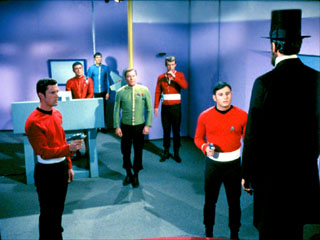 The eyes of fear want you to put bigger locks on your doors, buy guns, close yourself off. The eyes of love, instead, see all of us as one. Here's what we can do to change the world, right now. Take all that money that we spend on weapons and defense each year and instead spend it feeding and clothing and educating the poor of the world, which it would many times over, not one human being excluded, and we could explore space, together, both inner and outer, forever, in peace. - Bill Hicks The eyes of fear want you to put bigger locks on your doors, buy guns, close yourself off. The eyes of love, instead, see all of us as one. Here's what we can do to change the world, right now. Take all that money that we spend on weapons and defense each year and instead spend it feeding and clothing and educating the poor of the world, which it would many times over, not one human being excluded, and we could explore space, together, both inner and outer, forever, in peace. - Bill Hicks
I love space and astronomy stuff. I even read the Stephen Hawking book and didn't give up on it halfway through. That's not to say I like science-fiction very much. Most of it is very poorly written and Star Trek is a thinly veiled representation of US foreign policy. The 'Prime  Directive' is to never interfere in the 'natural' development of other societies and yet in every single episode something happens that offends the Enterprise crew so much that they just have to intervene to save these poor people from themselves. Sound familiar? Directive' is to never interfere in the 'natural' development of other societies and yet in every single episode something happens that offends the Enterprise crew so much that they just have to intervene to save these poor people from themselves. Sound familiar?
Despite the interest I have in it we need to leave it and leave it now.
The main humanistic arguments for exploring space are
1- To further our knowledge of the Universe and therefore our own origins
2- To see if we are alone in the Universe
3- To (possibly) prevent us all being wiped out by an asteroid strike
4- Humans are natural explorers - It is inherent in our nature
5- Technical gains for current Earth use and possible extraction of resources for future use
As for number one, this is probably the most fascinating information that space exploration has come up with so far. Pictures like this one from the Hubble Telescope (which shows one of the most complex planetary nebula ever seen, NGC 6543, nicknamed the "Cat's Eye Nebula.") are fantastic to look at and tell us a lot about the make-up of the Universe.

The second point is an important point philosophically and spiritually but the question is...would we know we were looking at life even if it was right in front of us? Think how long it took us to work out gravity, or that light moves. Life elsewhere is likely to be so different that we wouldn't know it even if we were looking at it. It is also very hard to define exactly what is life and what isn't....
If you think about it, a collection that includes a fruit fly and Richard Dawkins and the Great Barrier Reef is an awkward set of objects to try and compare. When we try and figure out what the rules are that we are looking for, trying to find a rule that's self-evidently true, that turns out to be very, very hard. Is [life] something, to coin someone's earlier phrase, that'll go squish if you step on it? (Douglas Adams) It is also likely to be so far away that it could never get here. Even if it could get here, if your house is in a disgraceful condition do you invite visitors?
The answer to the third point is that it is highly unlikely we would see an incoming asteroid (until it was too late) or be able to stop if it was (unless Bruce Willis was on form that day).
As to the fourth reason, it could be argued that people migrated (explored), and still do, with animal herds or to find good arable land - not from any inherent desire to do so.
On the fifth point it is unfortunately the case that technical gains tend to be used for military purposes first before they filter to the public - the military got Intercontinental Ballistic Missiles and spy satellites, the public got Velcro and Teflon. Is the trade off really worth it?
The exorbitant costs of the space program just aren't justifiable at the moment. Especially given that a lot of space missions don't work. $300 million dollars was wasted in one venture because the European made components were designed to work in kilometres and the American components were designed to work in miles. There are other things to be investing our resources in. I think everyone knows what they are.
That's the Humanistic part of it.
Now the militarisation part. NASA administrator Sean O'Keefe- everything NASA does from now on will be "dual use" (meaning it will serve both military and civilian purposes) has said, "propulsion power generation advances that are so critical to the purposes of achieving our exploration and discovery objectives are the same technologies that national security seeks to utilize." It has long been claimed by the Pentagon that they will require nuclear reactors in space to power space-based weapons.[i] A fleet of space planes will be designed to attack and destroy future satellites of enemies and rivals. A prototype is expected by 2005 with deployment envisioned around 2014.
In other words, with total domination of space instant annihilation of any state that gets out of line is possible. Stopping short of destruction, communications can be disrupted to ensure domination of the airwaves and then we can all watch reruns of Star Trek.
Lets not just call for an end to the militarisation of space. Let's try to stop anything that doesn't have a direct and immediate effect in pulling half of the world’s people out of poverty.
Once we have done that, then we can get round to "explor[ing] space, together, both inner and outer, forever, in peace."
Oh, we would finally be able to get rid of shitty satellite TV channels too.
[i] Iraq War Emboldens Bush Space plans - Bruce Gagnon, http://www.counterpunch.org/gagnon08082003.html |


Two points.
First, everything Nasa has ever done has been intended as dual use. It's a pretty common way for the US to fund stuff off the military books. Deep sea science research submersibles, as an example, were eventually used to deploy that ELF deep sea sonar that's making all the whales beach themselves.
Second, I still do believe in a space program, perhaps that is because I live down here at the heart of the US space program, but it should all be unmanned. There is absolutely nothing that people can do in space that can't be managed through unmanned spacecraft.
To much greater distances and at a tenth of the cost.
Mike